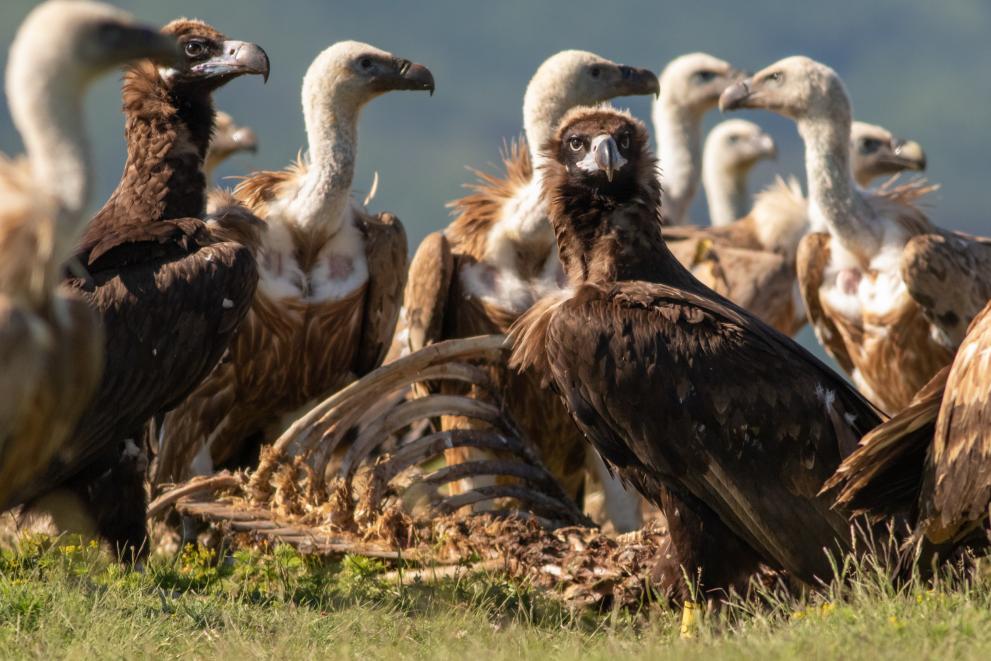
An international collaboration that has resulted in restoring previously extinct vulture populations to several Natura 2000 sites in Bulgaria, this project has also generated jobs and ecotourism opportunities led by local people.
About the project
- Main applicant
Fund for Wild Flora and Fauna
- Category
Conservation on land
- Countries involved
Bulgaria
- Main N2000 site
Kotlenska planina (BG0002029)
Overview
In Bulgaria, up until 2010, the griffon vulture was breeding only in the south-east corner, in 6-7 colonies. The cinereous vulture was considered extinct, with only small groups of the species visiting feeding sites in the Eastern Rhodopes. Both species suffered from persecution by humans, undeliberate poisoning and habitat deterioration.
For over a decade, two Bulgarian NGOs (Fund for Wild Flora and Fauna, and Green Balkans - Stara Zagora) and two international NGOs (Vulture Conservation Foundation and EuroNatur Foundation), have been working to restore populations of both species in their former ranges in Bulgaria. Within a framework of a series of EU LIFE-funded projects, the project partners invested in a reintroduction programme and anti-poisoning activities, including an “early-warning system for wildlife poisoning”. They also facilitated nesting by building artificial nests, minimised risks of electrocution in power lines and worked on raising local public awareness and involvement.
This all contributed to the creation of the innovative concept of “Vulture Safe Areas”. These safe areas – or steppingstones - allow the entire populations of both species to move securely in the Balkan Peninsula.
The project teams succeeded in restoring both species in the Vrachanski Balkan, Kotlenska Planina, Sinite Kamani-Grebenets and Kresna Natura 2000 sites in Bulgaria, where they had been locally extinct for decades.
They established 11 new colonies of the griffon vulture, doubled the species’ range in the country to 10 500 km2, and increased the number of breeding pairs by 50%. The national griffon vulture population now exceeds 150 breeding pairs and is considered sustainable.
The cinereous vulture was restored as a breeding species in the country in 2021, 36 years after it was listed as extinct in Bulgaria.
Furthermore, the conservation activities generated over 30 permanent and 50 temporary jobs and developed opportunities for local ecotourism activities related to vultures.

Reintroducing iconic vultures in Bulgaria - Video 
Reintroducing iconic vultures in Bulgaria - Photo 1Hristo Peshev - FWFF 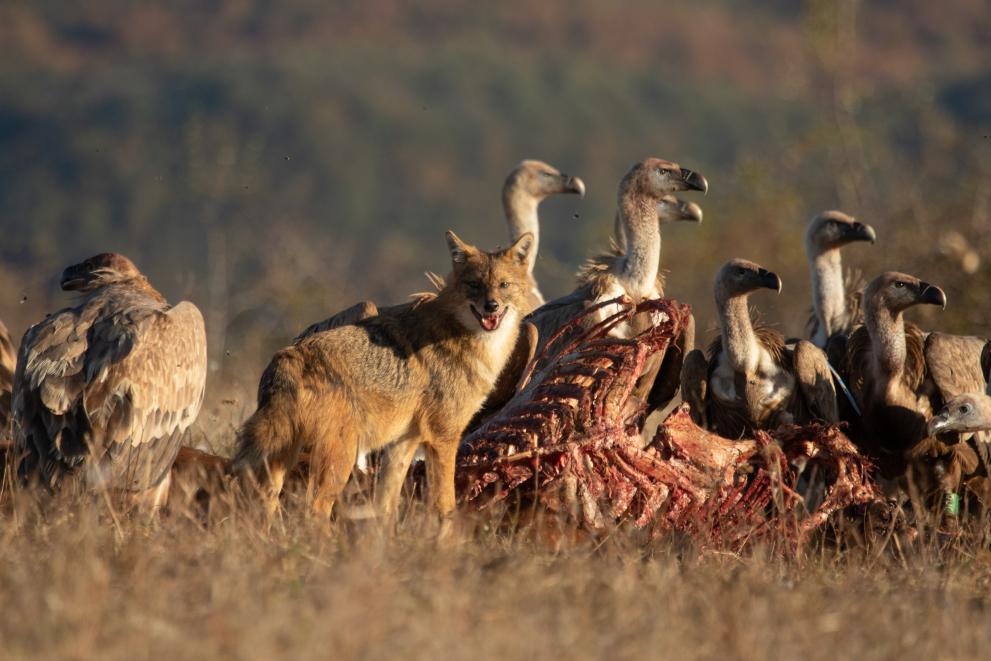
Reintroducing iconic vultures in Bulgaria - Photo 2Hristo Peshev - FWFF 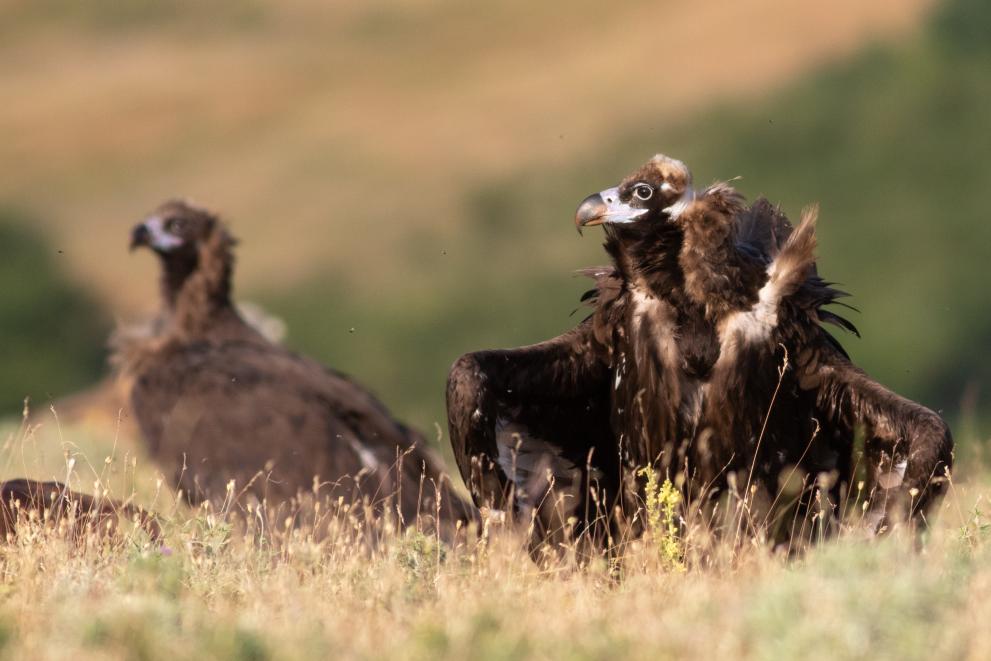
Reintroducing iconic vultures in Bulgaria - Photo 3Hristo Peshev - FWFF 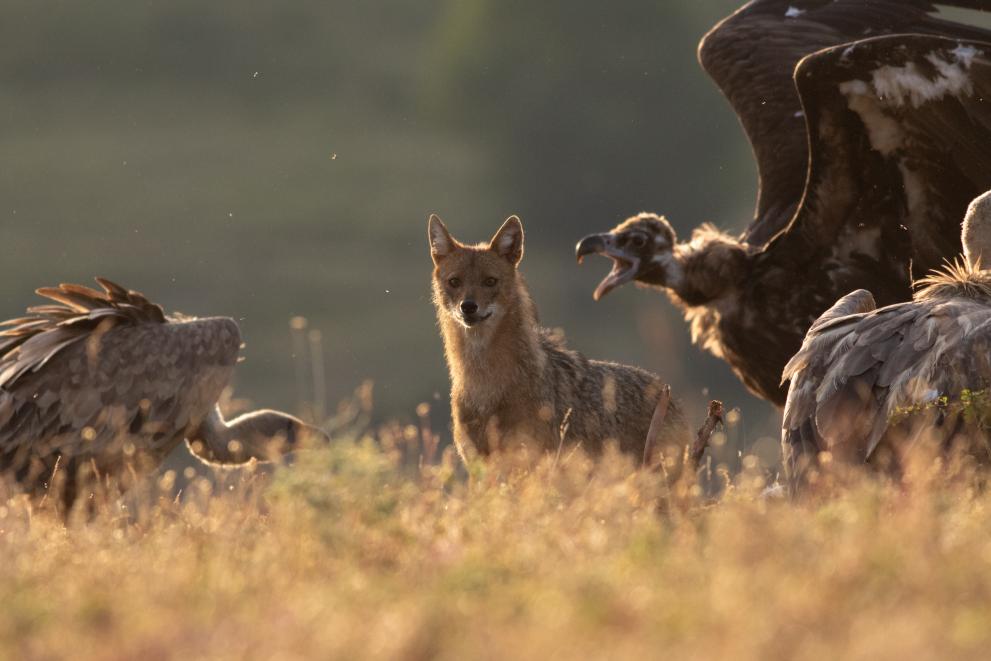
Reintroducing iconic vultures in Bulgaria - Photo 4Hristo Peshev - FWFF 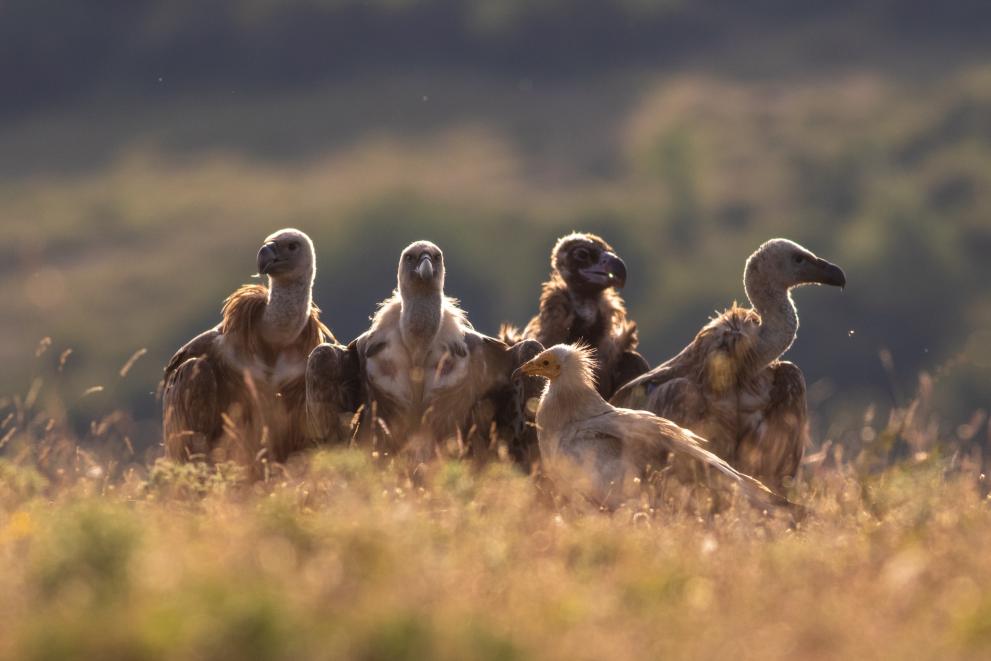
Reintroducing iconic vultures in Bulgaria - Photo 5Hristo Peshev - FWFF
